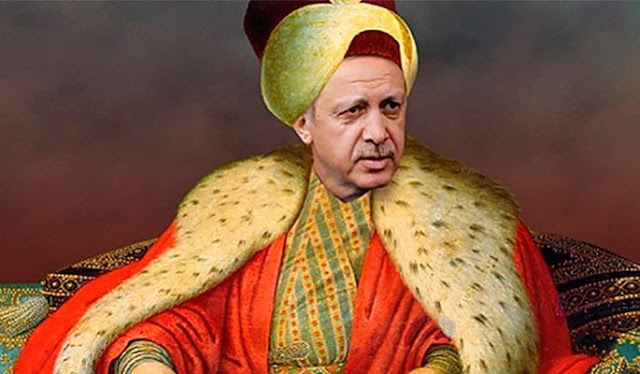The result of the Turkish election is that the country's long-standing leader, Recep Tayyip Erdogan, has been elected President for a five-year term, gaining over 50% of the vote in the first round.
At the same time there was an Parliamentary election, in which Erdogan's political coalition, the People's Alliance won 344 of the 600 seats.
This is the first election since the country voted last year in a Referendum to change the constitution towards a more Executive Presidential system, rather like the USA, so that the President can rule without a majority in the legislative assembly. However, the fact that Erdogan controls the Parliament as well, means that his rule will be strengthened.
Erdogan's opponent in the Presidential race was Muharrem Ince of the Republican People's Party.
This is the party of modern Turkey's founder Kemal Ataturk. Many years ago this would be considered a quasi-fascist party, committed to the secularisation and modernisation of Turkey. But now it is just a crappy social democratic party that wants Turkey to join the EU and become as cucked and gayed-up as Western Europe. Ince only got around 30% of the vote, mainly from Turkish bugmen in Istanbul and the Aegean coastline, which caters to Western tourists.
 |
| Typical Ince voter: Turkish bugman prowling the Aegean seafront hoping to bang tourist tottie. |
More interesting than the presidential election was the parliamentary election. Erdogan is the de facto leader of the soft-Islamist Justice and Development Party (JDP). Despite its social conservatism this party is actually business-friendly and pro-Europe.
But to win both the presidential election and gain a parliamentary majority, Erdogan had to form an alliance with the Eurosceptic and nationalist Movement Party (NMP), which the liberal Western media hysterically refers to a "far-right" or "ultranationalist."
Significantly in this election Erdogan's own JDP lost ground, going from 49.50% of the vote and 317 seats in 2015 to 42.56% of the vote and 295 seats. It was therefore only thanks to support from the NMP that Erdogan could win both elections, as the NMP scored 11.1% in the Parliamentary vote and increased its number of seats from 40 to 49.
In short, this election represents a bolstering of Erdogan's slightly weakening power by bringing on board a Turkish nationalist and eurosceptic element. Needless to say, this makes it all the more unlikely that Turkey will ever join the EU.
Around 3 million Turks living overseas voted in the election. Many of them have the right to vote in the European countries in which they live, where they usually vote for left-wing parties. In the Turkish elections, by contrast, they tend to vote right-wing.



























